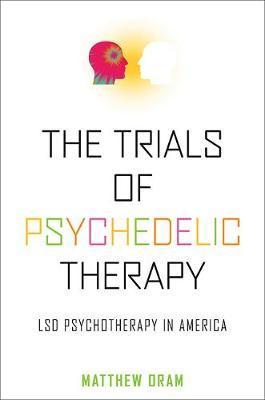Trials of Psychedelic Therapy

Trials of Psychedelic Therapy
In The Trials of Psychedelic Therapy, Matthew Oram traces the early promise and eventual demise of LSD psychotherapy in the United States. While the common perception is that LSD's prohibition terminated legitimate research, Oram draws on files from the Food and Drug Administration and the personal papers of LSD researchers to reveal that the most significant issue was not the drug's illegality, but the persistent question of its efficacy. The landmark Kefauver-Harris Drug Amendments of 1962 installed strict standards for efficacy evaluation, which LSD researchers struggled to meet due to the unorthodox nature of their treatment.
Exploring the complex interactions between clinical science, regulation, and therapeutics in American medicine, The Trials of Psychedelic Therapy explains how an age of empirical research and limited government oversight gave way to sophisticated controlled clinical trials and complex federal regulations. Analyzing the debates around how to understand and evaluate treatment efficacy, this book will appeal to anyone with an interest in LSD and psychedelics, as well as mental health professionals, regulators, and scholars of the history of psychiatry, psychotherapy, drug regulation, and pharmaceutical research and development.
PRP: 365.50 Lei
Acesta este Prețul Recomandat de Producător. Prețul de vânzare al produsului este afișat mai jos.
328.95Lei
328.95Lei
365.50 LeiIndisponibil
Descrierea produsului
In The Trials of Psychedelic Therapy, Matthew Oram traces the early promise and eventual demise of LSD psychotherapy in the United States. While the common perception is that LSD's prohibition terminated legitimate research, Oram draws on files from the Food and Drug Administration and the personal papers of LSD researchers to reveal that the most significant issue was not the drug's illegality, but the persistent question of its efficacy. The landmark Kefauver-Harris Drug Amendments of 1962 installed strict standards for efficacy evaluation, which LSD researchers struggled to meet due to the unorthodox nature of their treatment.
Exploring the complex interactions between clinical science, regulation, and therapeutics in American medicine, The Trials of Psychedelic Therapy explains how an age of empirical research and limited government oversight gave way to sophisticated controlled clinical trials and complex federal regulations. Analyzing the debates around how to understand and evaluate treatment efficacy, this book will appeal to anyone with an interest in LSD and psychedelics, as well as mental health professionals, regulators, and scholars of the history of psychiatry, psychotherapy, drug regulation, and pharmaceutical research and development.
Detaliile produsului











